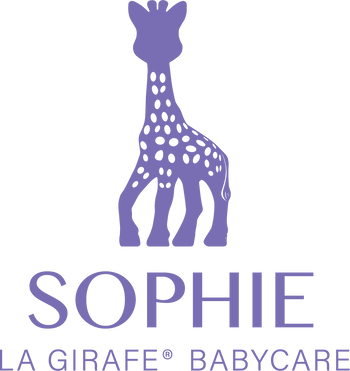
Debunking Common Myths in Baby Skincare Formulas
Debunking Common Myths in Baby Skincare Formulas
Myth 1: Fragrance-free and Unscented are the same thing.
Fact: At a glance, most parents would think “yes, but these terms are actually distinct! "Fragrance-free" means no fragrances are added whatsoever, while "unscented" may contain masking fragrances to cover up the scent of other ingredients. For sensitive baby skin, it's often best to choose "fragrance-free" products to reduce the risk of irritation.
|
FRAGRANCE-FREE |
UNSCENTED |
|
A "fragrance-free" product means that no additional scents or perfumes have been added. It should not have any noticeable scent.
|
"Unscented" products may contain ingredients that have a natural odor but are masked or neutralized to reduce any noticeable scent. This can be achieved through the use of masking fragrances or other chemical compounds. Unscented products may still contain ingredients that could trigger skin reactions. |
Myth 2: Many parents believe that "clean" baby skincare products are automatically better than those that are "bio-sourced."
Fact: "Clean" and "bio-sourced" are terms often used to market products as safe and eco-friendly. However, "clean" is not a regulated term and does not necessarily hold the same "kind to the environment" traits as something that is bio-sourced. Let’s dig in a little deeper:
|
CLEAN |
BIO-SOURCED |
|
The term "clean" in skincare refers to products that claim to be free from potentially harmful or controversial ingredients like parabens, sulfates, phthalates, and artificial fragrances. Clean products are often associated with a focus on safety, transparency, and sustainability however, it's essential to note that there is no universally agreed-upon definition or regulatory body governing what qualifies as "clean."
|
Bio-sourced or bio-based products are those made from ingredients derived from natural or renewable sources, such as plants, minerals, or microorganisms. These ingredients can be used as alternatives to petroleum-based or synthetic materials. The term "bio-sourced" emphasizes a commitment to sustainability and reducing footprint of products making them a preferred choice for those looking for both safety and environmental impact. |
Myth 3: Natural vs Synthetic – All synthetic ingredients are bad whereas all natural ingredients are good.
Fact: Contrary to popular belief, not all synthetic ingredients are harmful, and not all natural ingredients are safe. Many synthetic ingredients have undergone rigorous testing to ensure their safety for use in baby products. On the flip side, some natural ingredients can be irritating or allergenic, especially in their raw form. It’s important to evaluate the specific ingredients and their safety profile individually vs lumping them all together in a group!
|
NATURAL |
SYNTHETIC |
|
Natural ingredients are sourced directly from nature, typically from plants, minerals, or animals. They are minimally processed and are often considered gentle and safe, however, not all natural ingredients are safe for babies. Some can be allergenic or irritating, and natural ingredients can vary in quality and purity.
|
Synthetic ingredients are chemically produced in a lab. While the term "synthetic" may sound concerning, many synthetic ingredients are thoroughly tested and safe for use in skincare products. They can provide specific benefits, consistency, and stability that may be challenging to achieve with natural ingredients. It's essential to judge synthetic ingredients on a case-by-case basis and rely on scientific evidence to determine their safety for baby skincare. |
Myth 4: Organic = better or safer.
Fact: While organic products can offer certain benefits, such as reduced exposure to pesticides, it's important to remember that organic doesn't always mean better. The key is to focus on the entire ingredient list, as many non-organic ingredients are still safe and gentle for your baby's skin.
|
ORGANIC
|
|
Organic products contain ingredients that are grown without synthetic pesticides, herbicides, or genetically modified organisms (GMOs). Organic farming practices aim to minimize environmental impact, promote sustainability, and are often marketed as a healthier and eco-friendly choice. However, it's important to recognize that organic labeling does not guarantee safety or efficacy and several non-organic ingredients may still be safe and suitable for baby skincare. The key is to assess the complete ingredient list and look for recognized organic certifications (e.g., USDA Organic) to ensure the product's authenticity. |
Myth 5: Hypoallergenic automatically means safe for sensitive skin.
Fact: Although "hypoallergenic" means a product is less likely to cause allergies, it doesn't guarantee that it's suitable for every baby’s delicate skin. Each of our little ones has a unique skin type, and what works for one may not work for another.
|
HYPOALLERGENIC |
|
Manufacturers formulate hypoallergenic products with the aim of reducing allergenic potential however, it's important to note that there are no strict regulations or industry standards defining what qualifies as hypoallergenic. While yes, hypoallergenic products are generally designed to be gentler, individual sensitivities can vary, so patch-testing any new product, even those labeled as hypoallergenic, on a small area of your baby's skin before widespread use is always a best practice! |

